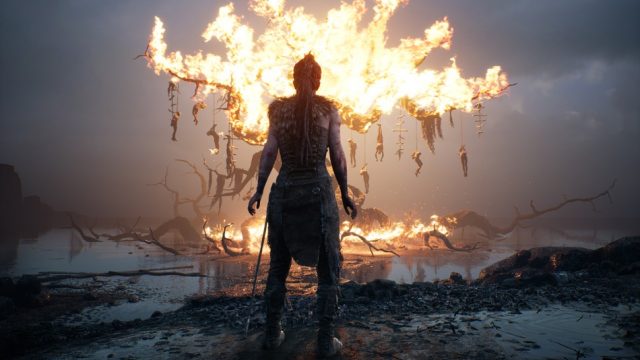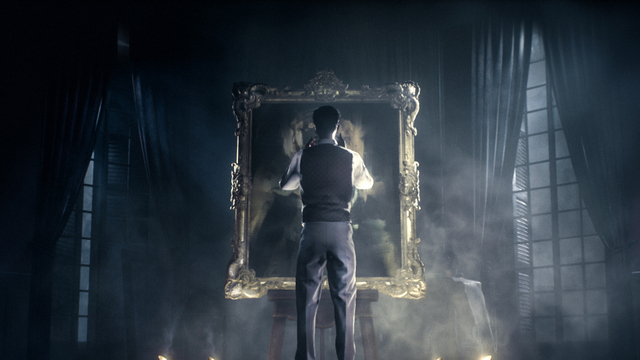Watching a demon crawl out of a painting would surely harm anyone’s psyche, especially if that demon then chases you through an already creepy art gallery. But, while the nightmare creatures and existential horror of Call of Cthulhu might drive anyone to madness, the most troubling aspect of the game is the sanity meter itself, one that attempts to mirror the ill effects of poor mental health.
Depicting mental health as a meter that slowly drains just doesn’t sit right. Mental health is not some cold and calculable meter that can be easily read. You can’t quickly reflect on your own mental health and know exactly where on a chart you stand. Mental health, like the horrors of Lovecraft that inspired Call of Cthulhu, is messy and abstract. Yet games continue to get it wrong, with one notable exception.
But Call of Cthulhu is by far not the first game to toy with mental health as a mechanic for the player to exploit. For decades, the mental condition of your avatar has been leveraged as a tool for the player, but very few have found way doing that in a way that is both respectful and engaging to the matter at hand.

Bloodborne, like Call of Cthulhu has a measurable insanity gauge. Surprisingly it is more fitting for the Lovecraftian notion of madness than Call of Cthulhu, without being a direct descendant of the formative work. In Bloodborne you are awarded, though that may not be the best term, ‘insight’ for witnessing the supernatural, unexplainable and insane. At a certain point, that insight effects the way you see the entire world in some really interesting ways. Bloodborne treats insight as a currency however, something that can be traded away freely and leaves few lasting scars. The afflictions of madness last only as long as you want them to, even if you don’t fully understand the effects.
Darkest Dungeon, on the other hand, depicts mental health as a growing list of measurable symptoms. These symptoms attachment themselves to each character as something traumatic happens, like being lost in the dark, wounded by an eldritch horror, or reading a scary book. They can’t be easily cured, and feel suitably unpredictable, but, once more, the system is cold, detached and designed to be understood.
Amnesia: Dark Descent uses no insanity meter, list or counter to determine your characters mental state. Unfortunately, it demonstrates insanity as little more then sensory distortion. You might suffer hallucinations, but more often than not it is just a wobbly screen and some whispery noises.

Its not that these games aren’t fun, but the way they frame mental health as anything from an annoyance to a tool to be wielded is problematic. There have been some games praised for their depiction of mental health though. Hellblade: Senua’s Sacrifice has you play as a young woman battling her own psychosis. The games uses the mental health of the protagonist as a central concept and Ninja Theory, the studio behind Hellblade went to a lot of effort to create a realistic depiction of psychosis by speaking to real life doctors and sufferers. But that is not the only thing that made Hellblade stand out as a good example.
One of the reasons this version of mental health was so well received was because it wasn’t a mechanic. You can not affect Senua’s mental state, it is tied to the game narrative, rather than the game system, and so becomes something the player has no control over. Instead, players, like Senua, have to learn to live with it rather than simply fixing it. Framing mental health this way, as something almost ethereal, makes Hellblade one of the best examples of mental health in games today.
Of course, Hellblade isn’t the first game to use mental health as a story device. While nowhere near as careful, the Dead Space series also uses the central characters madness as part of the story, with players contending with Isaac’s growing hallucinations and paranoia. But where Dead Space falls down is how the illness is framed as something external. Isaac’s madness was brought about by the Marker, not his own trauma and psyche. The ultimate goal of the series is to rid himself this external source of his illness, even if it rarely goes to plan.
Madness is hard to understand by its very nature, but games needs to do a better job framing these often extremely personal issues. Call of Cthulhu is based upon a pen and paper RPG, and the prolific works of HP Lovecraft. Madness, in that world, is something utilised for storytelling and explanation, but that doesn’t mean we should so uncritically adapt it into video games.
In an interactive medium, we might expect to be in total control, but to do that to insanity is a disservice to everyone who knows what it is like to not be wholly in control of oneself. It is not something the player should necessarily understand about their character. It is not something the player should be able to utilize for their own benefit. It is not some external influence that can be killed or cured outright. Insanity is not something to be exploited. We can do better.











